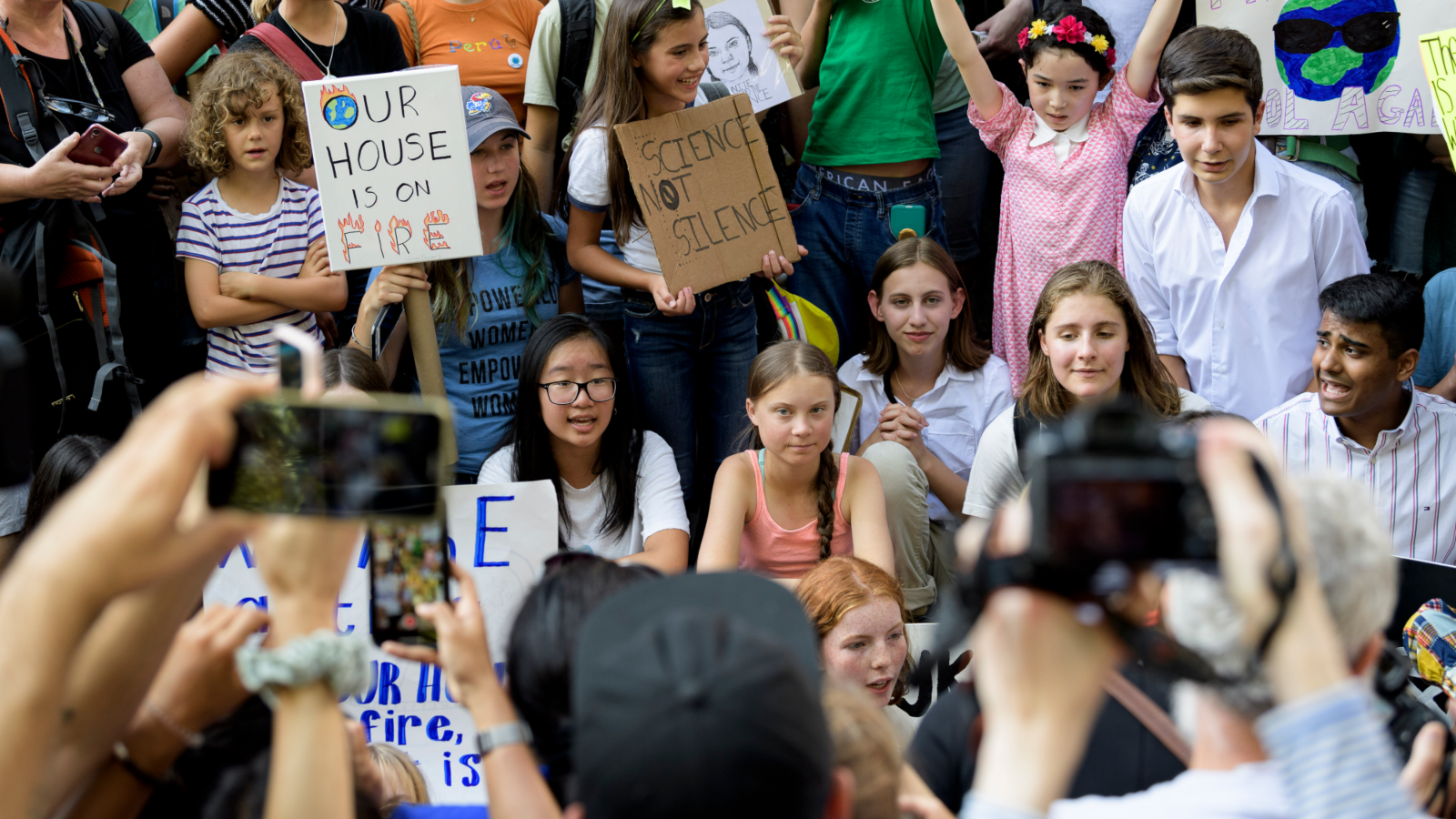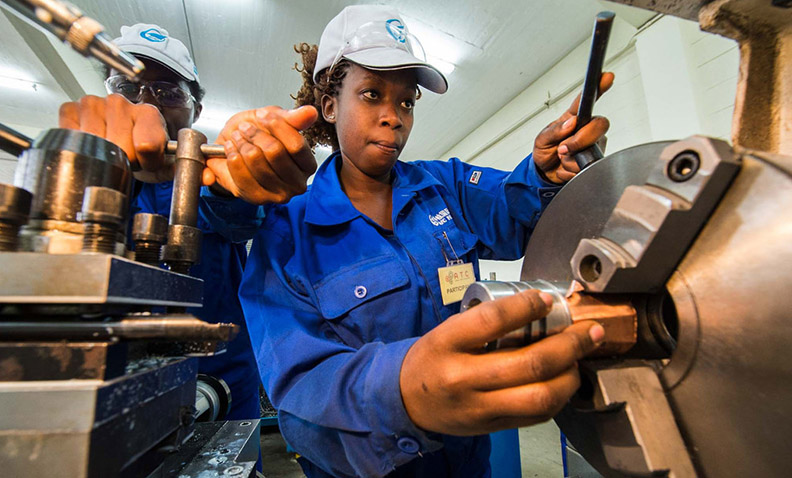Find out more in
Youth
Global Issues:
On its 10th anniversary, World Youth Skills Day (15 July) focuses on empowering youth through artificial intelligence (AI) and digital learning. Today, 7 in 10 young people—some 450 million—are disconnected from economic opportunities due to a lack of adequate skills. From basic literacy to advanced digital and AI skills, empowering young people helps them not only adapt, but lead change. On this day, add your voice to the global celebration! Use #WorkLifeReady and #YouthLead to share your story and uplift others on the path to success.
As key agents of change, the current generation of young people must increase food production, replace an aging workforce, and adapt to increasing extreme climate events. With 1.3 billion individuals aged 15 to 24 globally, the Food and Agriculture Organization of the United Nations (FAO) has released a comprehensive report titled “The Status of Youth in Agrifood Systems,” which examines and emphasizes the crucial role of youth in transforming agrifood systems to improve food security, nutrition, and economic opportunities.
With 1.2 billion young people in emerging economies reaching working age over the next decade—and only about 420 million jobs expected to be generated—the urgency of finding scalable and sustainable solutions has never been greater.
In this episode of The Development Podcast, we hear from one young person about their journey into the world of work and what the World Bank Group is doing to address one of the most urgent issues facing development: how to meet the stable employment aspirations of the developing world's fast-growing youth population.
Things should be looking good for young people in the world of work, but they’re not. While unemployment among young workers between 15 and 24 has recovered from the impact of the Covid-19 pandemic, there’s a growing epidemic of unhappiness among those workers in both the developed and now the developing world. So, what is to be done? This podcast asks David Blanchflower, a professor at Dartmouth College, renowned labour economist and recognized expert on youth employment, what can be done.
This year's World Tsunami Awareness Day (5 November) focuses on "youth and future generations," in line with the International Day for Disaster Risk Reduction and the Summit of the Future. Activities will mark the 20th anniversary of the 2004 Indian Ocean tsunami by sharing its lessons with children and youth. The United Nations Office for Disaster Risk Reduction (UNDRR) urges at-risk countries to update evacuation routes, install warning systems, and raise awareness among young people. They also urge youth and educational institutions to play an online game to learn life-saving skills.
By 2050, cities will house 70% of the global population, and 60% of urban residents will be under 18 by 2030, underscoring the urgency for action particularly where poverty and inequality persist. World Cities Day focuses on this, showcasing youth innovation and strategies for implementation. Initiatives like the Pact for the Future aim to raise youth voices in sustainability discussions, while the past Summit of the Future provided a platform for their perspectives on global policy. Proposed actions include forming youth councils and keeping dialogue between young people and policymakers.
Increasing disasters, many driven by climate change, threaten children worldwide. In 2022, flooding in Chad, Gambia, Pakistan, and Bangladesh affected the highest number of children in 30 years. Education can empower children to protect themselves and become agents of change, aligning to reduce global disaster risks. The International Day for Disaster Risk Reduction (13 October) focuses on the role of education in protecting and empowering children for a disaster-free future, which aligns with the Summit of the Future's priorities.
“Shootings, that’s why I left. Rapes. All that. I could not stay [back home]” – Solona, 14
Armed groups in Port-au-Prince and the Artibonite region are terrorizing entire communities. As streets, schools and playgrounds have been turned into battlefields, many have had no choice but to leave everything behind. Thousands are now stranded in makeshift displacement sites. Struggling to access electricity, food, water, and adequate sanitation. Entire families are sleeping outside on the ground, at the mercy of torrential rains and disease-carrying insects. Children unable to go to school.
Violence in Haiti has reached shocking levels. UNICEF continues to call for an end to the violence.
Salma Akter Aduri’s family, potato farmers from Rangpur, Bangladesh, struggled to sell their cash crops at a profitable price. Facing dire circumstances, it looked like they would be forced to either give up their land or take high-interest loans from moneylenders, they joined the Birahim Farmer’s Cooperative, which received support through the Missing Middle Initiative. This initiative, implemented by the Food and Agriculture Organization of the United Nations (FAO) and funded by the Global Agriculture and Food Security Program (GAFSP), worked with farmers to improve access to finance, markets, technology, and information.
Salma Akter Aduri’s family, potato farmers from Rangpur, Bangladesh, struggled to sell their cash crops at a profitable price. Facing dire circumstances, it looked like they would be forced to either give up their land or take high-interest loans from moneylenders, they joined the Birahim Farmer’s Cooperative, which received support through the Missing Middle Initiative. This initiative, implemented by the Food and Agriculture Organization of the United Nations (FAO) and funded by the Global Agriculture and Food Security Program (GAFSP), worked with farmers to improve access to finance, markets, technology, and information.
If you ask people how they would define comprehensive sexuality education, you’ll probably get a range of responses, possibly peppered with misinformation and confusion. Here are the facts: Comprehensive sexuality education is a process of teaching the emotional, physical and social aspects of sexuality, with a goal of helping children stay safe and prepare for the future. It leads to fewer pregnancies, less disease and less abuse. It teaches young people about human development, reproduction and healthy relationships, and about how to recognize abuse, resist peer pressure and understand consent. It saves lives.
Pictured are young people at the Kibirizi youth space in Rwanda’s Rubengera sector.
Young rural people are bringing agriculture into the digital age. Meet three young people in Asia who’ve cracked the code: how to irrigate crops while saving both time and water.
As world leaders prepare to gather for the Summit of the Future, meet 10 young leaders who are leveraging digital solutions to create a secure future for all of us.
Digitalization is transforming our world, offering unprecedented opportunities to accelerate sustainable development. Young people are leading the charge in digital adoption and innovation using technology to drive change and create solutions. As the 2030 deadline for the Sustainable Development Goals (SDGs) approaches, the role of young people in digital innovation is essential for addressing global issues. This International Youth Day (12 August), let’s celebrate the digital contributions of youth, and inspire further innovation and collaboration to achieve sustainable development.














